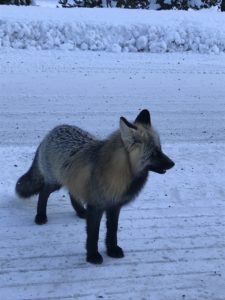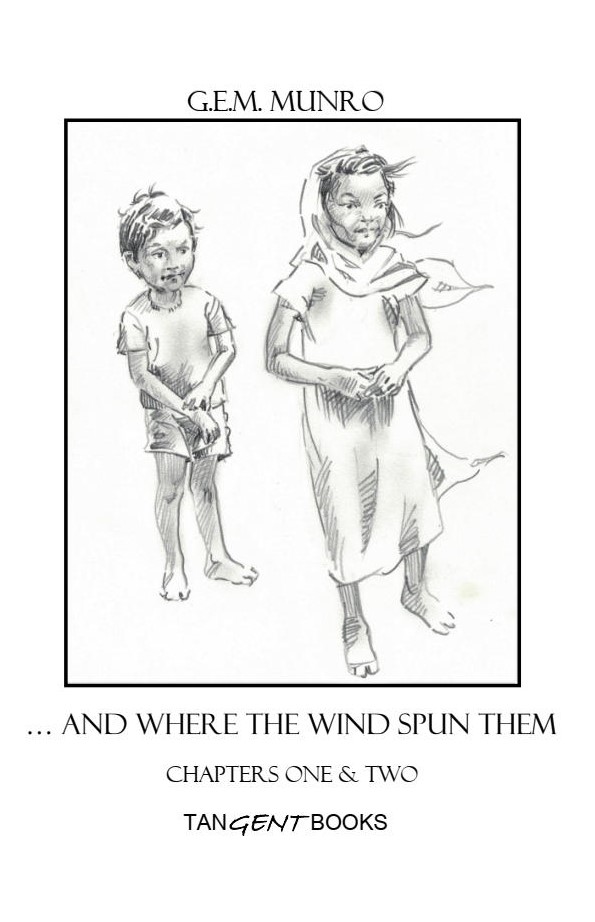 The song says “There’s no place like home for the holidays.” For our family, because of our endeavours, that statement has been more predictive than descriptive. Most Christmases, we’re at no place like home for the holidays. However, this Christmas just past, we managed, by extraordinary effort, to gather at our remote, wild BC home.
The song says “There’s no place like home for the holidays.” For our family, because of our endeavours, that statement has been more predictive than descriptive. Most Christmases, we’re at no place like home for the holidays. However, this Christmas just past, we managed, by extraordinary effort, to gather at our remote, wild BC home.
I arrived first by a few days, to find six trees lying across our road/driveway, so my Christmas tree-trimming was more literal and strenuous than I’d expected, but, despite the fact that the tools available were an axe and a swedish saw, I felt bracingly Canadian clearing the trees away. The weather was reasonably mild when I arrived, but the magnificent mountains that surround our property demonstrated winter’s descent by the day. We had a white and very cold Christmas. The new snow offered proof of the many animals that were active right around us: bears, wolves, lynx (we thinx), foxes, martens and eagles of the predators, deer, rabbits, grouse, squirrels and mice o so many mice of the prey.
As the cold became more extreme, the prey populations went to hide wherever it is they do so successfully; being a predator is no picnic at the best of times, there’s no such thing as a prey buffet, and most pure predators dwell in a state of semi-starvation, and haven’t much leeway. After many days of deep freeze, two foxes cautiously presented themselves to me outside our house, one red, one black. Now, a black fox is actually a red fox. A black fox is a mutation of a red fox, not a separate species, in the same way that a Caucasian or Asiatic person is probably a mutation of an African, probably black, person, not a separate race. (I personally don’t mind being a mutant, except that my own superpower seems to be limited to falling asleep quite quickly at night, which is really lame compared to, say, throwing fireballs.)
These two foxes were of different colours, but were identical in behaviour, so we may deduce that one of them was guilty of cultural appropriation, but I’m not sure which.
I must emphasize that these were truly wild foxes, without previous direct contact with human beings; but I wasn’t surprised or alarmed by their approach, as it has been Tanyss’ and my experience, in the course of living in wilderness for various periods of our life, that, on numerous occasions, wild animals in extreme need or distress have appealed to our mercy.
We regard this as highly significant and indicative, in that these animals are not going to overcome natural wariness in order to seek what isn’t there; they aren’t going to have an instinctual imperative to seek something nonexistent. That these animals seek kindness from us is quite sufficient evidence that kindness exists as a genuine quality of nature, isn’t just some fuzzy wish of soft-headed, soft-hearted losers available to the mocking dismissal of the avaricious, the selfish, the psycho- or socio-pathic; the ‘real world’ of those who use ‘survival of the fittest’ to justify ruthless disregard for others isn’t actually the real world at all. Tanyss and I have lived in close proximity to wolf packs, and we’ve seen that wolves, unlike what the ‘wolves’ of Wall St. want us to believe, don’t kill off their weaker members, they share food with them.
It’s a dog-eat-dog world only for those whose perceptions pervert the real nature of dogs. For all the rest of life, it’s really more a fox-eat-leftover-turkey world.
